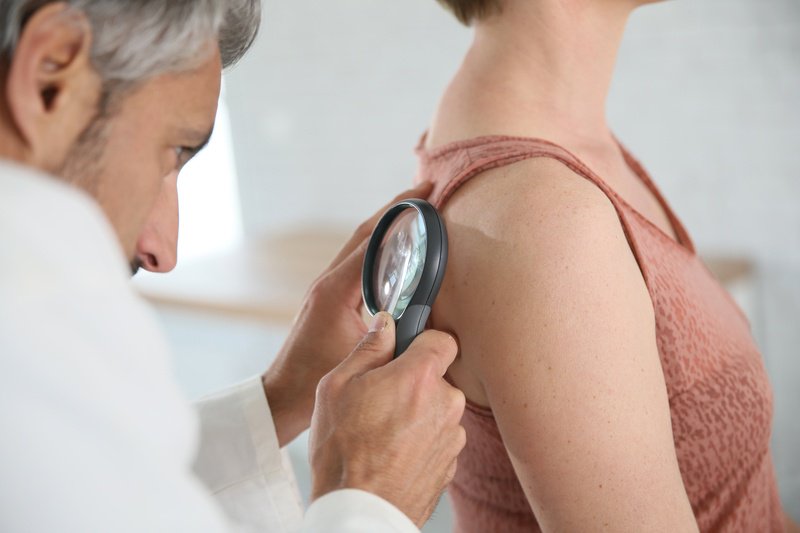Your screening with a board-certified dermatologist is simply an inspection of your skin to look for any potential problems. There is no blood taken for lab work at the screening.
Why do I need a skin cancer screening?
Skin cancer is the most common cancer in this country. In a person’s lifetime it is reported that out of every five Americans, one of them will develop skin cancer. People of all ethnicities are affected by skin cancer. There are many different types of skin cancer and it’s a good idea to understand what they are and the differences.
When skin cancer is detected early and proper treatment is administered, the cure rate is high. Here are some factors that signify the possibility of skin cancer:
- If two or more blood relatives have a history of melanoma
- Many uncommon moles
- Numerous precancerous lesions that are grey to pink in color with scaly patches of skin with lots of sun exposure
How can I help prevent skin cancer?
Avoid using tanning beds at all and especially if you are fair-skinned with blonde or red hair and blue eyes. Avoid excessive sun that can cause blistering sunburns. This kind of intense sunburn can cause skin cancers. Use sunscreens year-round.
Who performs skin cancer screening?
Board-certified dermatologists do the screening. They are expertly skilled in detecting skin cancer in the earliest stages. They will help you avoid the risk of the disease by sharing effective skin cancer prevention techniques.
Which areas of my body will be screened for skin cancer?
A full body exam is recommended for the most comprehensive results. Otherwise, visible parts of the body to include the hands and arms, neck and face will be examined. You may expect:
- a 10- to 15-minute visit
- a review of your medical history
- a full body skin examination
- a chance to ask about any areas or spots you are worried about
Looking to get a Skin Cancer Screening?
Discuss any changes in a mole or spot. If the doctor has any concerns a sample of the tissue will be taken for a biopsy. Test results will reveal whether or not the mole is a problem. If you have other dermatological conditions ask your board-certified dermatologist for an examination of any of them. We have multiple locations throughout the country, so fill out our simple online form to get in touch with us. One of our local team members will reach out to you shortly to answer your questions or schedule an appointment for you to visit us soon.
Find a location near me
or

